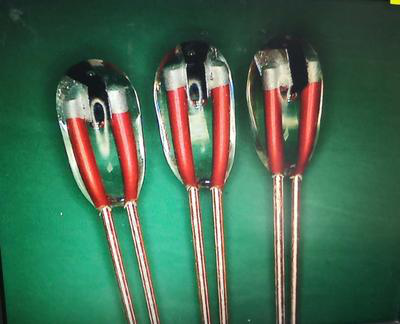Glass encapsulated NTC thermistors are an essential component in various electronic devices and appliances. In this article, we will explore what glass encapsulated NTC thermistors are, how they work, and their applications.
What Is NTC Thermistor?
NTC means negative temperature coefficient and NTC thermistor is a high-precision detection resistor that adopts special semiconductor ceramics with a negative temperature coefficient. The resistance of an NTC will decrease with increasing temperature in a non-linear manner. The function of the glass NTC thermistor is to detect the temperature and show the predictable and precise change in electrical resistance, so as to protect the circuit’s safety. The thermistors are made of semiconducting materials and they have a variety of shapes and sizes to choose from, such as disc type, bead type, and rod type.Generally, the glass encapsulated NTC thermistor consists of three specific components. They include:
● Glass bead
● Dumet lead wires made of copper and iron
● Thermistor chip
All three parts mentioned above are combined to form a sealed glass probe. For many industries such as food, chemistry, and pharmaceuticals, hermetic sealing is necessary.
What is The Working Principle Of Glass Encapsulated NTC Thermistor?
The working principle of the glass NTC thermistor is that the resistance changes with temperature. When the ambient temperature changes, the glass encapsulated NTC thermistor starts to heat its components. Its resistance value changes with temperature. This change depends on the type of thermistor used.What Are The Benefits Of The Glass NTC Thermistor?
The thermistor is a non-linear resistor that changes resistance characteristics based on surrounding temperatures. One of the most frequently used thermistors is glass encapsulated NTC thermistor, hermetically sealed. The glass NTC thermistor is an efficient and cost-effective choice to eliminate the number of errors found in resistance readings because of moisture penetrations. They can do this while also allowing for high-temperature operations.● The thermistors and their compact size allow for encapsulation in a variety of custom deep drawn housings.
● Glass-probes is small, so glass encapsulated NTC thermistors can fit into different housing options with various shapes.
● Compared to other temperature sensing probes, the glass NTC thermistor is less expensive
● Glass encapsulated NTC thermistor can detect the temperature quickly and accurately.
Why glass coating is used in thermistors?
A glass coating is for high-temperature applications and this coating can also protect against corrosion and humidity. Glass encapsulated thermistors are hermetically sealed to eliminate resistance reading flaws that are caused by moisture penetrating the thermistor. The glass encapsulated NTC thermistor eliminates resistance reading errors caused by moisture penetration and they function efficiently in extreme temperatures as well as under severe environmental conditions.
What are the applications of the glass NTC thermistor?
● Household appliances● Automotive transportation
● Digital Thermostats
● Over-current protection
● Thermometers
Q&A
Can the glass encapsulated NTC thermistor be used in high-temperature environments?Yes, but the thermistor must be selected based on its temperature range and the specific requirements of the application.
Is the glass NTC thermistor more accurate than other types of thermistors?
The glass encapsulated NTC thermistor offers high accuracy and stability over time, but the accuracy of any thermistor depends on several factors, including calibration and environmental conditions.
What is the difference between a glass encapsulated NTC thermistor and a surface-mount NTC thermistor?
The glass NTC thermistor is typically larger and more durable than the surface-mount NTC thermistor, but it may also be more expensive and require additional installation steps.
Can the glass NTC thermistor be repaired if damaged?
It is generally recommended to replace a damaged glass encapsulated NTC thermistor rather than attempting to repair it.
What is the typical lifespan of a glass encapsulated NTC thermistor?
The lifespan of a glass NTC thermistor depends on several factors, including the specific application, environmental conditions, and proper installation and use. However, they are generally considered to be long-lasting and reliable components.
Conclusion
Overall, the glass encapsulated NTC thermistor is a versatile and reliable component used in various electronic devices and appliances. They offer several advantages over other types of thermistors and are well-suited for temperature sensing applications. Proper selection, installation, and use of glass NTC thermistors are critical to ensure their accuracy and reliability.







